Itinerary
Lively, commercial Oporto is the second largest city in Portugal after Lisbon. Also called Porto for short, the word easily brings to mind the city’s most famous product – port wine. Oporto’s strategic location on the north bank of the Douro River has accounted for the town’s importance since ancient times. The Romans built a fort here where their trading route crossed the Douro, and the Moors brought their own culture to the area. Oporto profited from provisioning crusaders en route to the Holy Land and enjoyed the riches from Portuguese maritime discoveries during the 15th and 16th centuries. Later, port wine trade with Britain compensated for the loss of the spice trade and the end of gold and gem shipments from Brazil. In the 19th century, the city went through a period of new prosperity with the rise of industries. In its wake followed the building of workers’ quarters and opulent residences. Since the declaration of Oporto as a World Heritage Site by UNESCO, the city aims to build up a cultural reference that will provide it with a new image, based on deep historical roots. Among the attractions that make Oporto such an interesting place are its graceful bridges spanning the Douro River, a picturesque riverfront quarter and, most notable, its world-famous port wine lodges. Although Oporto is a bustling centre and home to many different businesses, the source of its greatest fame is the rich, sweet fortified red wine we know as port.
Day programme:
EMBARKATION – PORTO. Board the ship for your Enticing Douro cruise. (D)
Day programme:
RÉGUA. This tranquil village offers an authentic slice of Douro River life. Indulge in a traditional Portuguese lunch with your fellow travelers in Regua at a local quinta – a country estate – for a truly authentic culinary experience. In the afternoon, visit the Baroque-style Palacio de Mateus and its gardens. Inside the house, you’ll see interesting furnishings, paintings and a ceiling of intricately carved wood. The gardens here are considered some of the most beautiful in Portugal. (B,L,D)
Day programme:
VEGA DE TERRÓN, SPAIN. In the morning, spend time soaking up the beauty of this picturesque port before you visit Castelo Rodrigo, a small fortified village perched high on a hilltop with centuries-old walls, steep narrow streets and fantastic views. You can also opt to hike up to the village should you wish a more active exploration. (B,L,D)
Day programme:
VEGA DE TERRÓN, SPAIN – SALAMANCA. Drive to Salamanca, a UNESCO World Heritage Site. Built of golden sandstone, Salamanca is known as a “living museum,” and you will have an opportunity to step back in time to the Middle Ages during your escorted tour, which includes the city’s elegant university buildings, the New Cathedral, the intriguingly decorated House of Shells and Plaza Mayor. (B,L,D)
Day programme:
PINHÃO. Spend time soaking up the beauty of the Douro River as you cruise to Pinhão. Be treated to an exclusive lunch at Quinta da Avessada, where you’ll enjoy an authentic and traditional dining experience complete with entertainment. Quinta da Avessada is also a fascinating interactive museum commemorating the history and culture of wine in the Alto Douro region, so you’ll have fun discovering all the various stages of wine production as well as doing plenty of tasting. Savor the flavors of Portugal’s renowned fortified wine, vinho do porto, made exclusively in the Douro Valley. Head to a local quinta for your authentic Port-wine tasting experience and enjoy the sweet nectar of this fascinating region. (B,L,D)
Day programme:
RÉGUA. Travel to picturesque Lamego, home to one of the most important pilgrimage sites in all of Portugal, where you’ll go to the Nossa Senhora dos Remédios (Sanctuary of Our Lady of Remedies). The shrine features a staircase of nearly 700 steps, beautifully decorated with white and blue tiles, which the more active adventurer will want to climb on a guided hike. Concluding both tours, you will have the opportunity to sample local traditional specialties, such as bôlas de Lamego, bread filled with smoked ham; presunto, a type of dry-cured ham; and Espumante, a Portuguese sparkling wine. (B,L,D)
Lively, commercial Oporto is the second largest city in Portugal after Lisbon. Also called Porto for short, the word easily brings to mind the city’s most famous product – port wine. Oporto’s strategic location on the north bank of the Douro River has accounted for the town’s importance since ancient times. The Romans built a fort here where their trading route crossed the Douro, and the Moors brought their own culture to the area. Oporto profited from provisioning crusaders en route to the Holy Land and enjoyed the riches from Portuguese maritime discoveries during the 15th and 16th centuries. Later, port wine trade with Britain compensated for the loss of the spice trade and the end of gold and gem shipments from Brazil. In the 19th century, the city went through a period of new prosperity with the rise of industries. In its wake followed the building of workers’ quarters and opulent residences. Since the declaration of Oporto as a World Heritage Site by UNESCO, the city aims to build up a cultural reference that will provide it with a new image, based on deep historical roots. Among the attractions that make Oporto such an interesting place are its graceful bridges spanning the Douro River, a picturesque riverfront quarter and, most notable, its world-famous port wine lodges. Although Oporto is a bustling centre and home to many different businesses, the source of its greatest fame is the rich, sweet fortified red wine we know as port.
Day programme:
PORTO. The colorful city of Porto blends the best of old and new, which you can discover on an escorted tour of the historic quarter, a UNESCO World Heritage Site, including the Cathedral, one of the city’s oldest monuments; and the São Bento Railway Station, known for its blue and white tile panels depicting scenes from Portuguese history. You’ll also enjoy a tasting of Port, Portugal’s most renowned contribution to the world of wine. If you prefer to get more active, you can go on a guided hike and then enjoy a Port wine tasting. Later in the day, visit the charming town of Guimarães, known as the “birthplace of the Portuguese nationality,” as well as the official residence of the President of Portugal. You will visit the Quinta de Sezim and enjoy a visit to the baron’s winery for a wine tasting on the terrace. (B,L,D)
Lively, commercial Oporto is the second largest city in Portugal after Lisbon. Also called Porto for short, the word easily brings to mind the city’s most famous product – port wine. Oporto’s strategic location on the north bank of the Douro River has accounted for the town’s importance since ancient times. The Romans built a fort here where their trading route crossed the Douro, and the Moors brought their own culture to the area. Oporto profited from provisioning crusaders en route to the Holy Land and enjoyed the riches from Portuguese maritime discoveries during the 15th and 16th centuries. Later, port wine trade with Britain compensated for the loss of the spice trade and the end of gold and gem shipments from Brazil. In the 19th century, the city went through a period of new prosperity with the rise of industries. In its wake followed the building of workers’ quarters and opulent residences. Since the declaration of Oporto as a World Heritage Site by UNESCO, the city aims to build up a cultural reference that will provide it with a new image, based on deep historical roots. Among the attractions that make Oporto such an interesting place are its graceful bridges spanning the Douro River, a picturesque riverfront quarter and, most notable, its world-famous port wine lodges. Although Oporto is a bustling centre and home to many different businesses, the source of its greatest fame is the rich, sweet fortified red wine we know as port.
Day programme:
PORTO – DISEMBARKATION. Disembark the ship and you prepare for your flight home. (B) **DISCLAIMER: Itinerary subject to change.
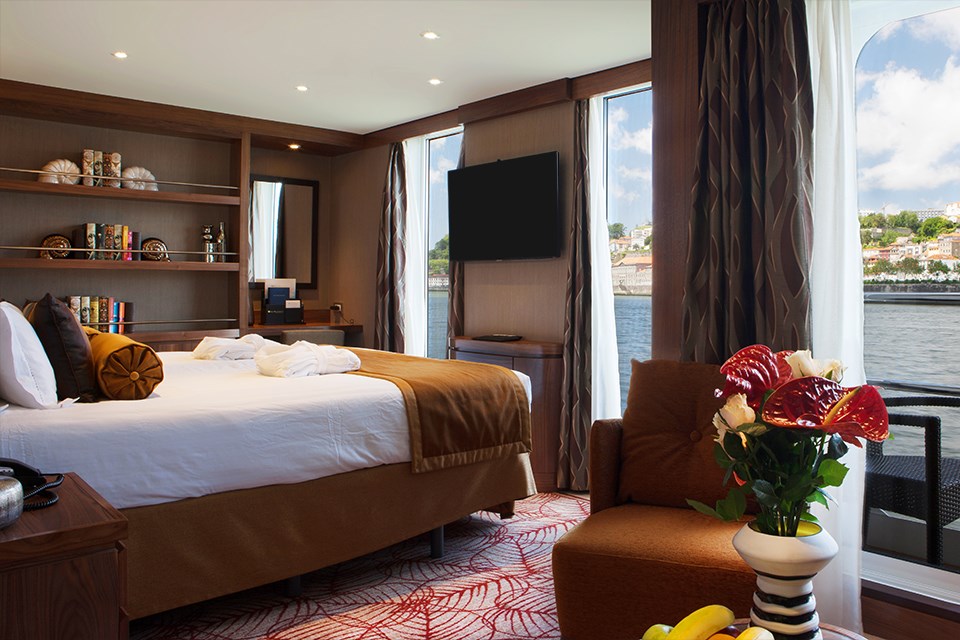
Stateroom Features
- In-room temperature control
- Deluxe hotel-style bedding with Egyptian linen, down pillows and duvet
- Spacious bathrooms with multi-jet showerheads
- Large wardrobe, full-length mirror, hair dryer, safe and direct-dial telephone
- Flat-screen TV
- Entertainment on Demand system providing complimentary TV, movies and music library
- Complimentary internet and Wi-Fi
- Complimentary bottled water replenished daily
- Desk and chair
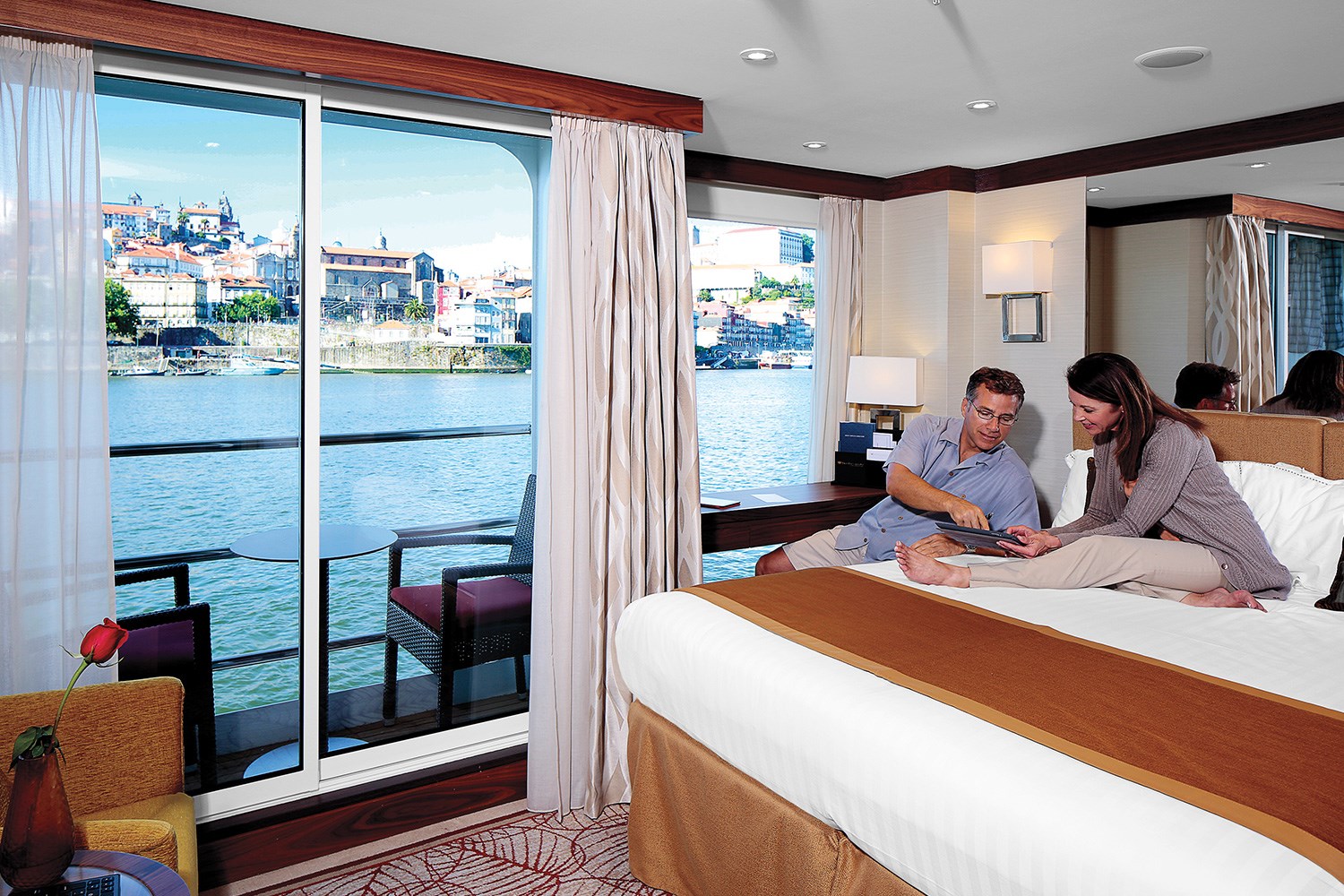
Stateroom Features
- In-room temperature control
- Deluxe hotel-style bedding with Egyptian linen, down pillows and duvet
- Spacious bathrooms with multi-jet showerheads
- Large wardrobe, full-length mirror, hair dryer, safe and direct-dial telephone
- Flat-screen TV
- Entertainment on Demand system providing complimentary TV, movies and music library
- Complimentary internet and Wi-Fi
- Complimentary bottled water replenished daily
- Desk and chair
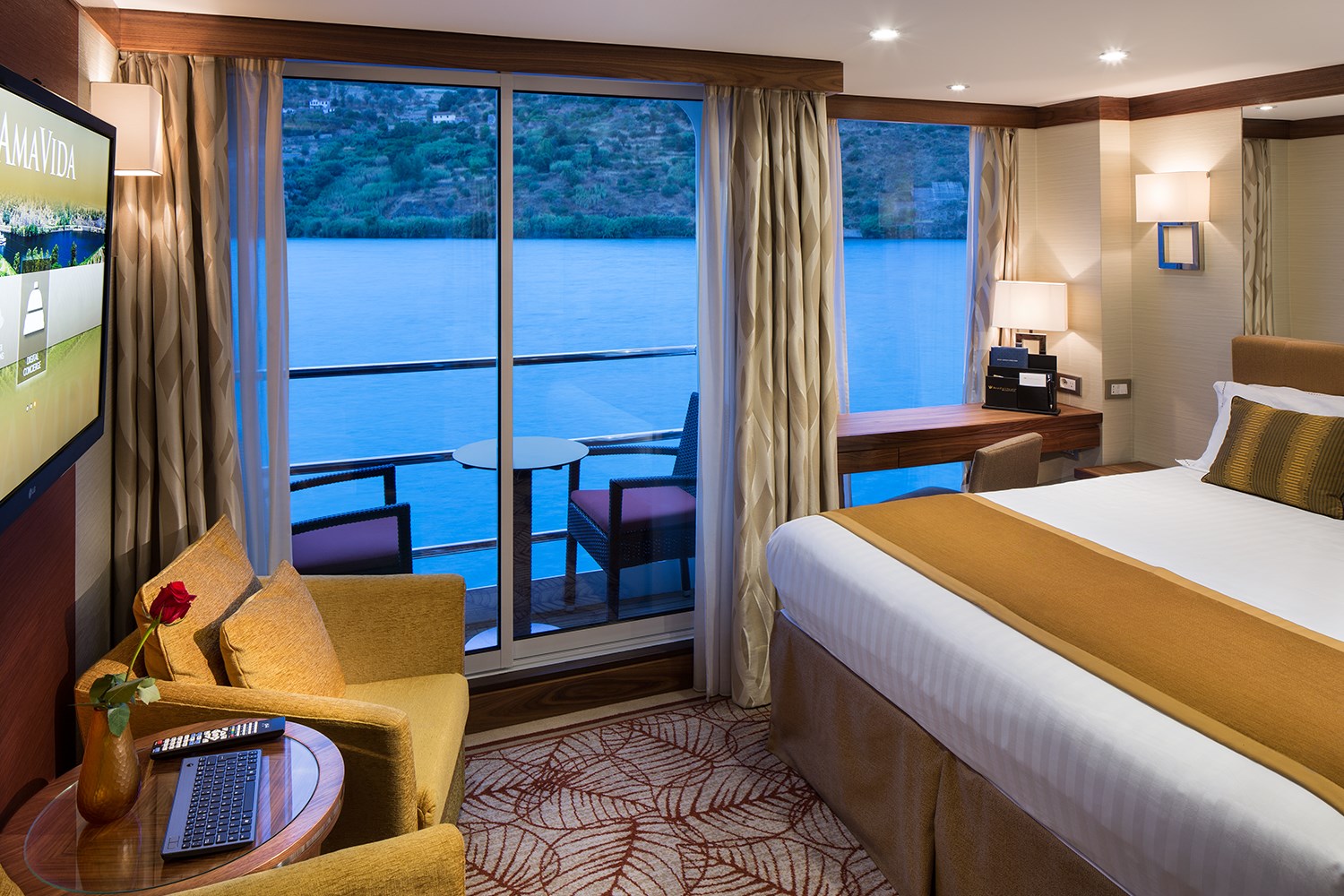
Stateroom Features
- In-room temperature control
- Deluxe hotel-style bedding with Egyptian linen, down pillows and duvet
- Spacious bathrooms with multi-jet showerheads
- Large wardrobe, full-length mirror, hair dryer, safe and direct-dial telephone
- Flat-screen TV
- Entertainment on Demand system providing complimentary TV, movies and music library
- Complimentary internet and Wi-Fi
- Complimentary bottled water replenished daily
- Desk and chair

Stateroom Features
- In-room temperature control
- Deluxe hotel-style bedding with Egyptian linen, down pillows and duvet
- Spacious bathrooms with multi-jet showerheads
- Large wardrobe, full-length mirror, hair dryer, safe and direct-dial telephone
- Flat-screen TV
- Entertainment on Demand system providing complimentary TV, movies and music library
- Complimentary internet and Wi-Fi
- Complimentary bottled water replenished daily
- Desk and chair
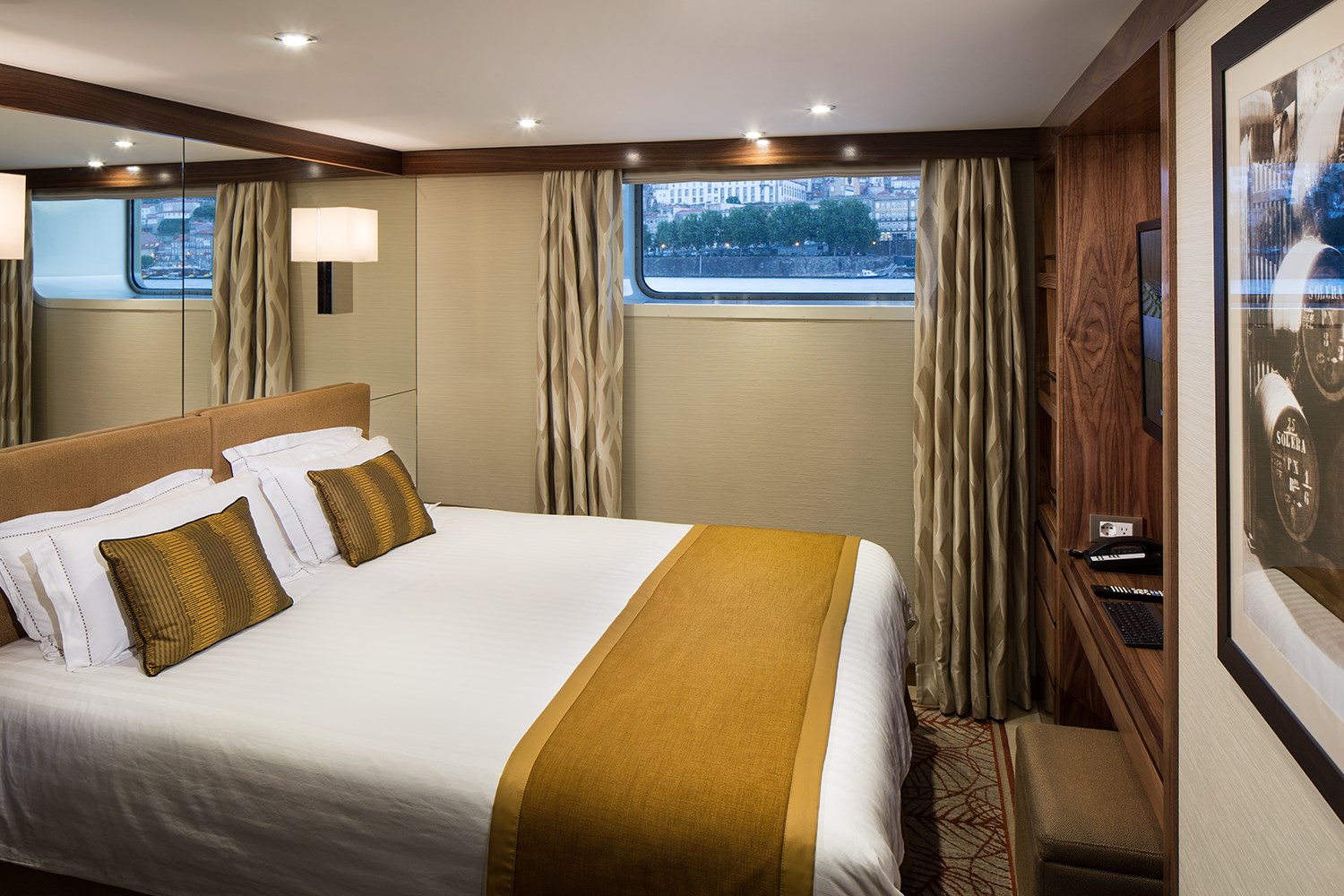
Stateroom Features
- In-room temperature control
- Deluxe hotel-style bedding with Egyptian linen, down pillows and duvet
- Spacious bathrooms with multi-jet showerheads
- Large wardrobe, full-length mirror, hair dryer, safe and direct-dial telephone
- Flat-screen TV
- Entertainment on Demand system providing complimentary TV, movies and music library
- Complimentary internet and Wi-Fi
- Complimentary bottled water replenished daily
- Desk and chair
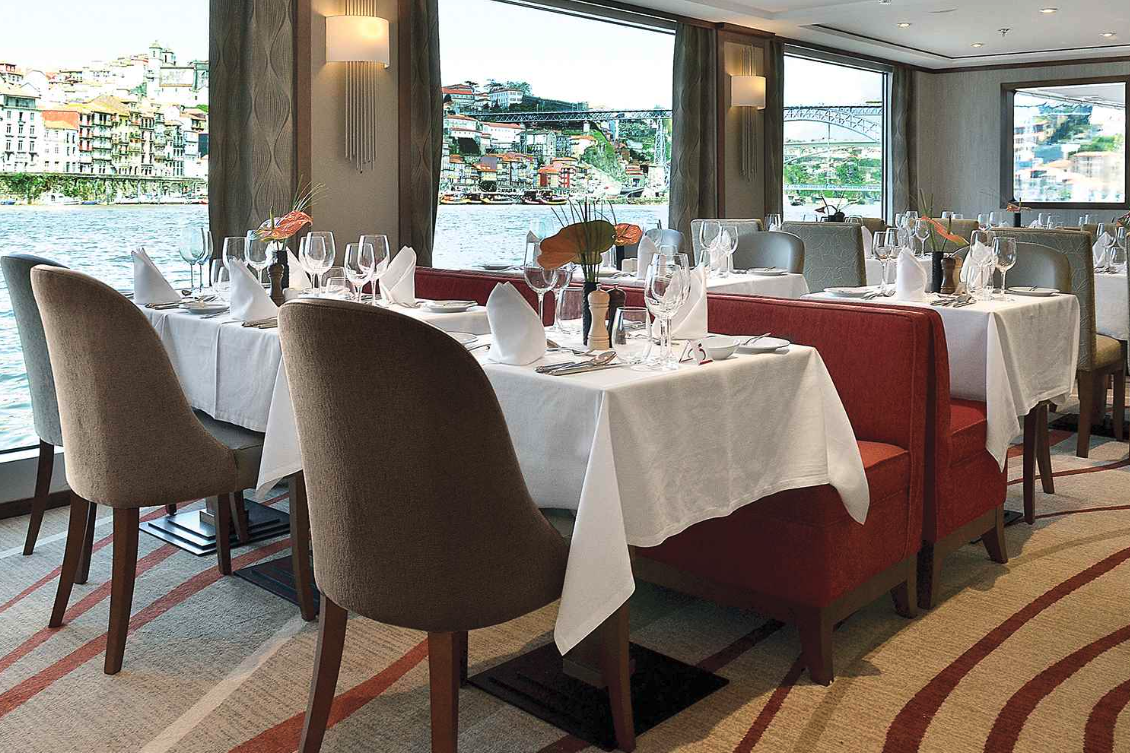
Savour regionally inspired, exquisite cuisine at a variety of dining venues.
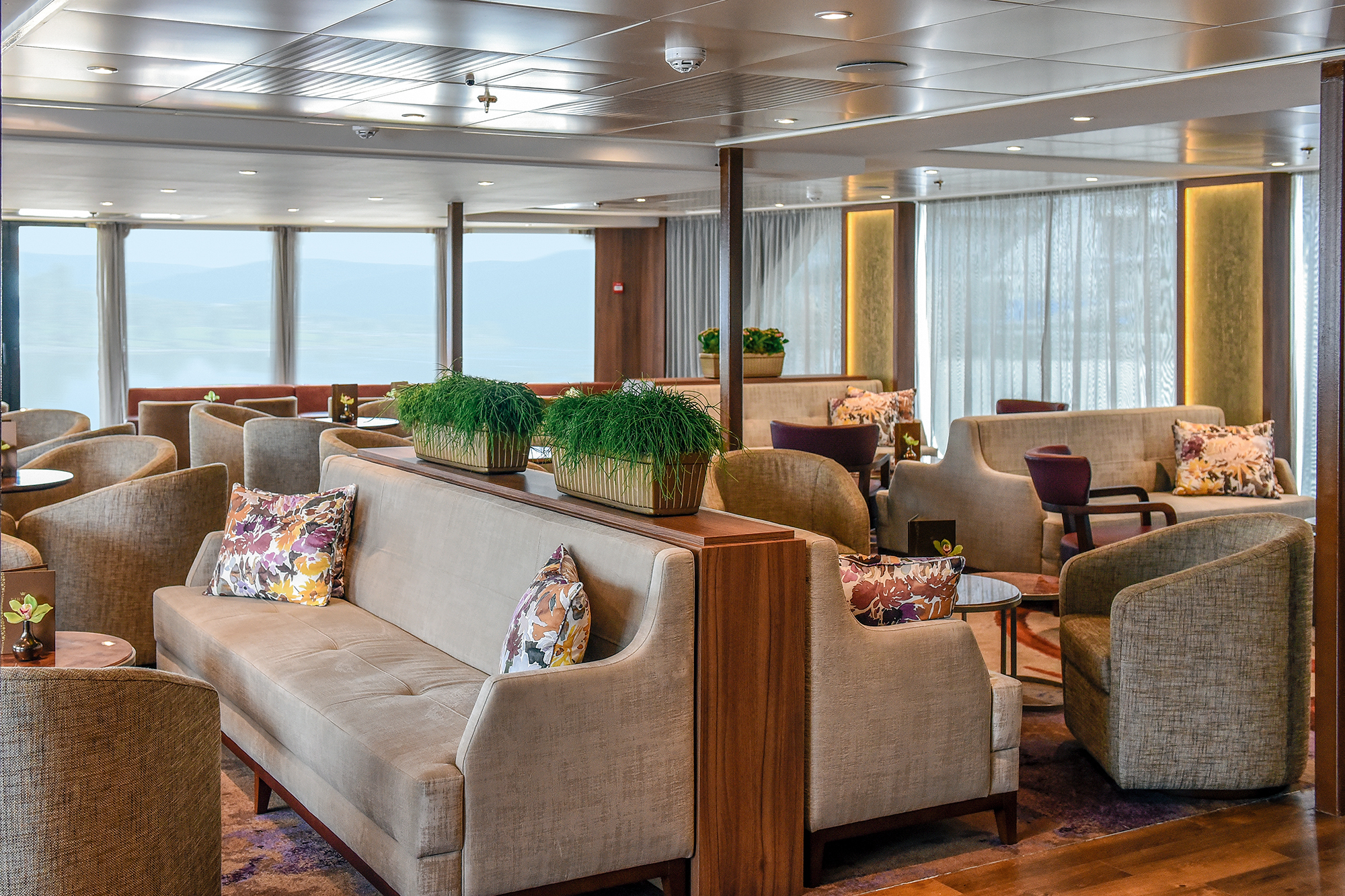
Whether it’s a folkloric performance, local Fado musicians or modern piano favourites, there is an eclectic schedule of entertainment on board.
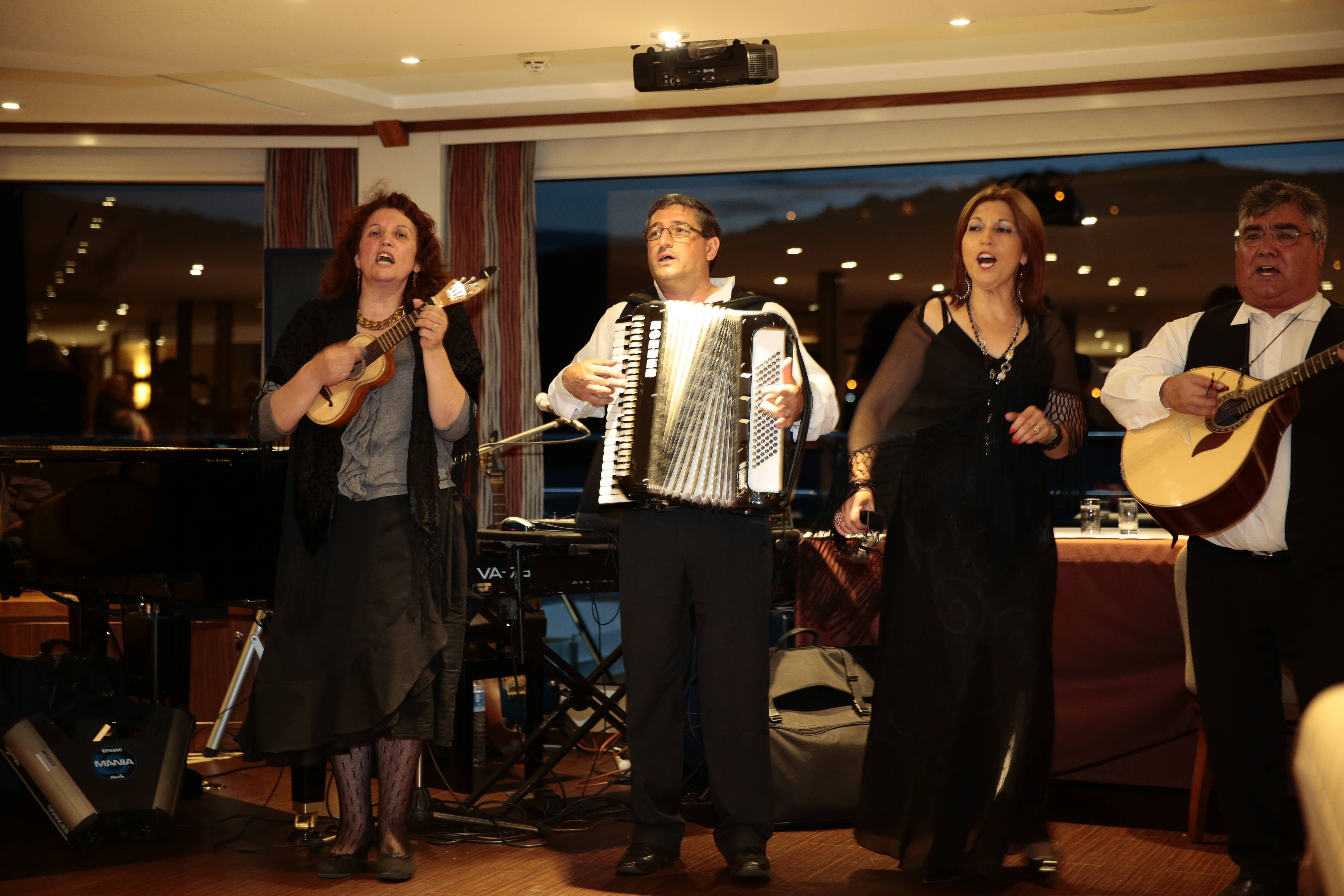
Daily entertainment including cultural performances
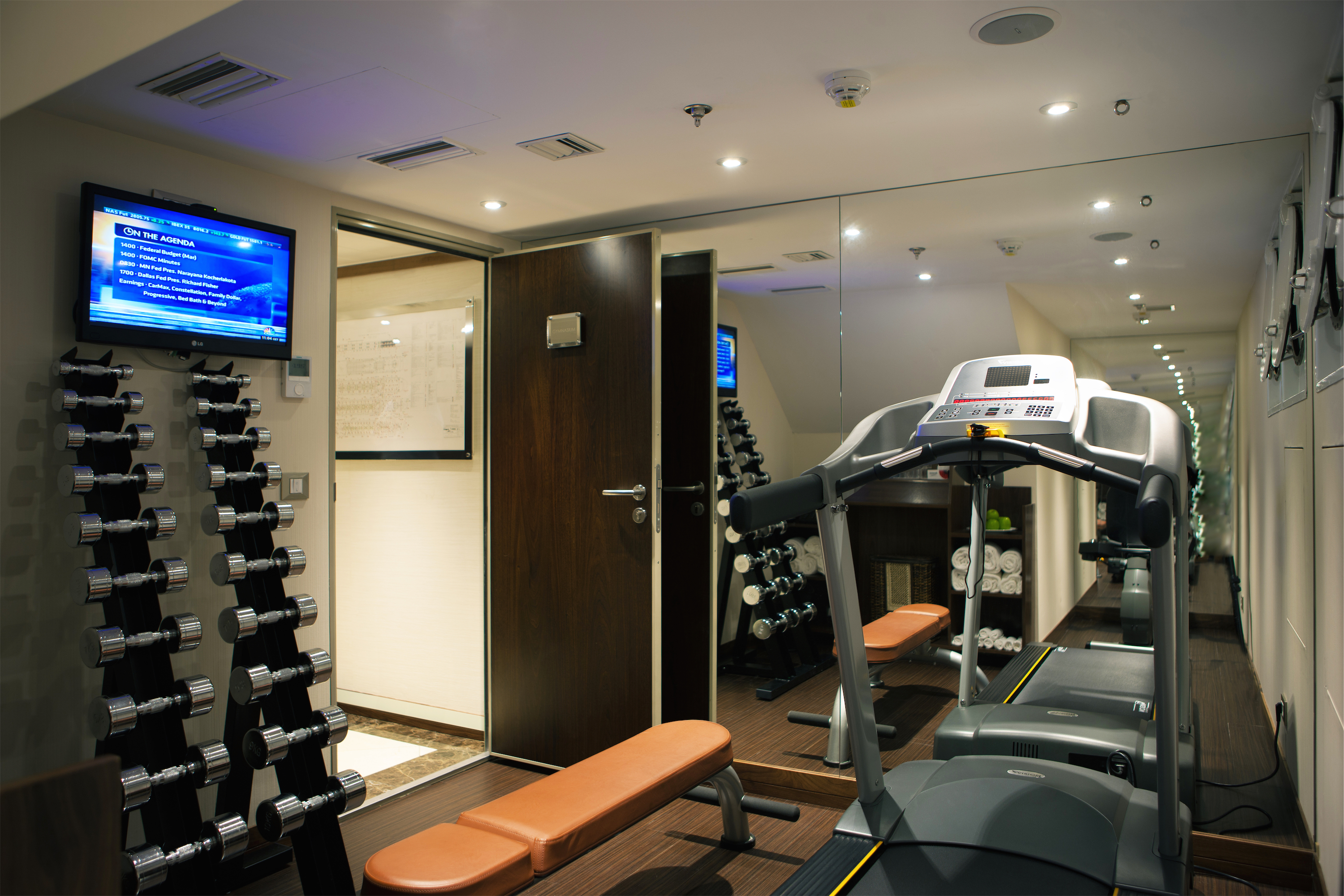
Are you looking for a way to stay fit on vacation? Hit the treadmill or lift some weights while cruising from one destination to the next.
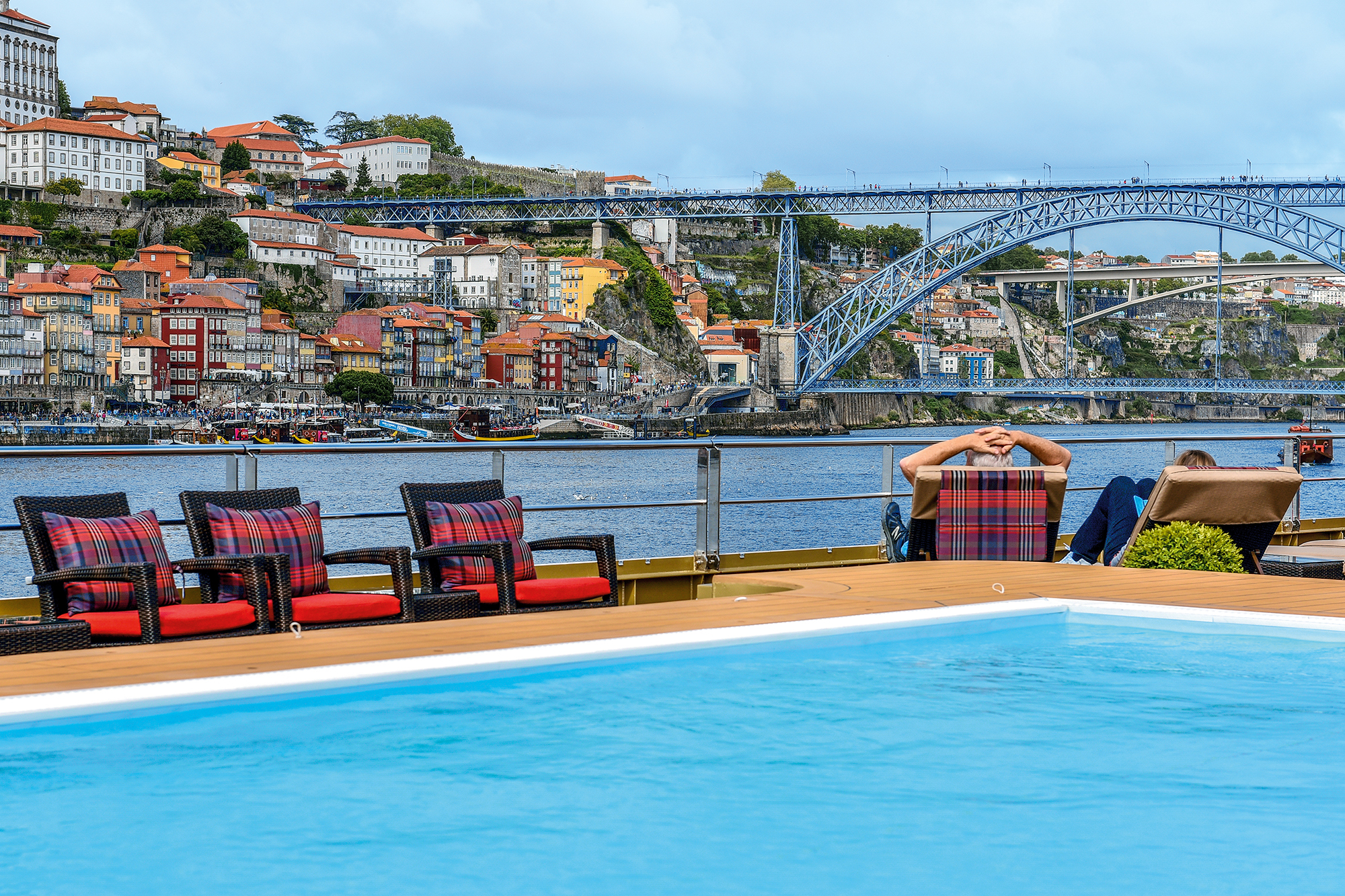
Soak up some rays or take a dip in our refreshing pool with a swim-up bar as we pass by centuries-old castles, charming villages and other breathtaking scenery.
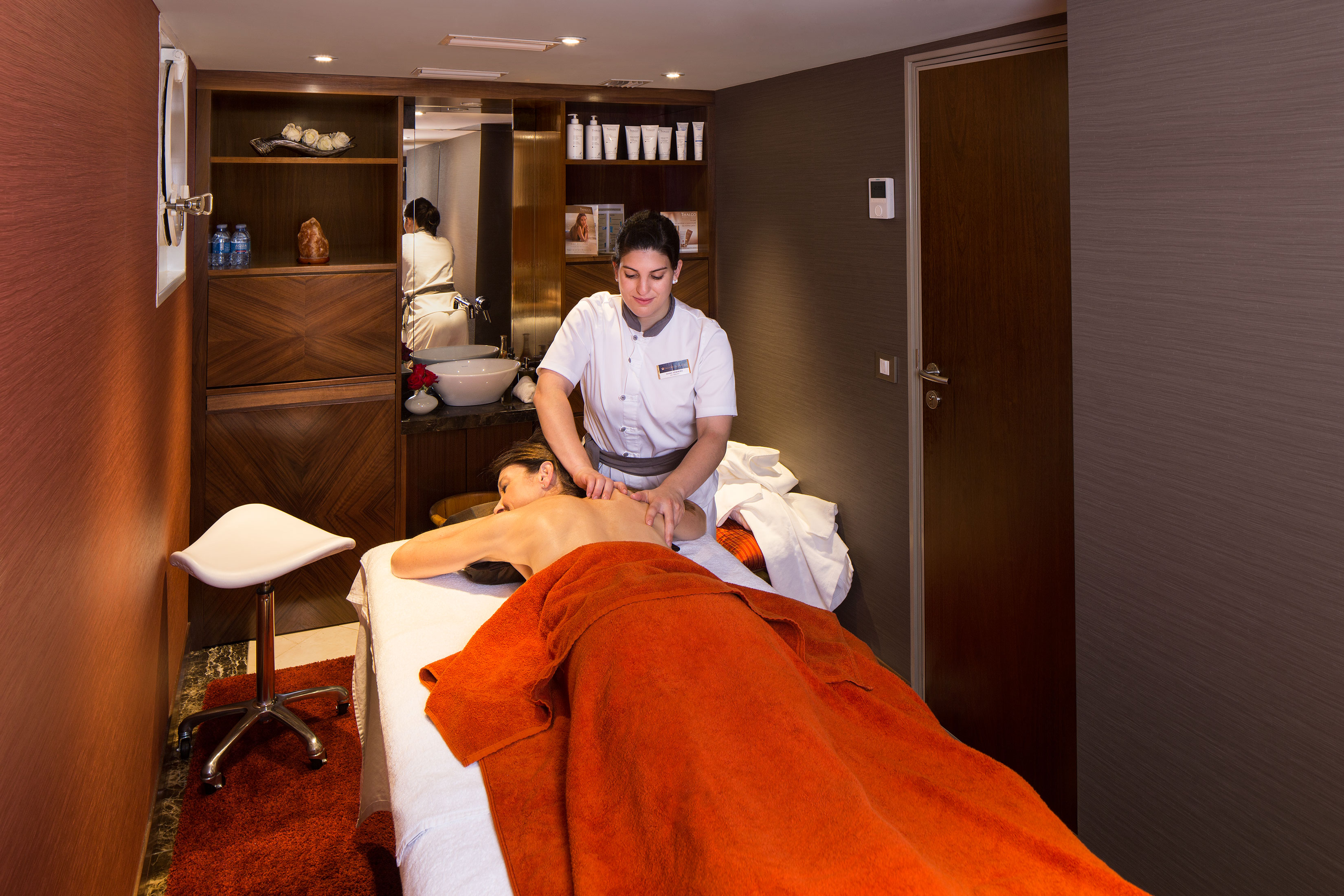
After a marvellous day of immersive shore excursions, return to the ship and treat yourself to a bit of pampering with a soothing massage.
Effective immediately, AmaWaterways will only be welcoming guests fully vaccinated against Covid-19 on board its ships. This vaccination requirement also applies to accompanied minors. Guests affected by this decision should contact their travel advisor for options to reschedule their river cruise.
On our programs in Europe and Southeast Asia, children under the age of 4 years old are not permitted on board and children 4-7 years old are not recommended. On our Africa safaris program, due to safety precautions, there is a minimum age limit of 12 years old, unless otherwise agreed upon by AmaWaterways. All guests under the age of 18 are to be in a stateroom with an adult, and must remain supervised at all times, as their safety is the responsibility of the accompanying adult(s). Children between the ages of 4 and 10 at the time of embarkation may share a stateroom with 2 adults provided the child is able to share the bed with the adults – no additional bed will be provided. Select ships offer a limited number of staterooms with a fold-out sofa for a triple occupant; we would be happy to guide you through these options when available. A triple occupancy rate will apply for the child sharing the stateroom; pricing can be provided upon request. Please be aware that balcony staterooms of any kind may be unsafe for small children if left unsupervised. AmaWaterways does not provide child-specific programs or child-minding facilities. Please reach out to us if you have any further questions regarding our child policy.
As of March 3, 2022, children 5 and older at time of sailing are still required to be vaccinated however, children that are not yet eligible for the vaccine are able to come onboard if they can provide a negative PCT test taken within 72 hours of embarkation.
Reasonable efforts are made to accommodate the special needs of disabled cruise participants, but no responsibility will be undertaken for any denial of services by carriers, hotels, restaurants, or other independent suppliers. Tour buses are not equipped with wheelchair ramps and cabin doors are not wide enough to allow access by standard wheelchairs.
Wheelchairs and walkers cannot be carried on tour buses, due to space limitations. Wheelchair passengers should be aware of these limitations. For safety reasons, passengers in wheelchairs cannot be carried on ramps in ports where the ship is at anchor. We regret that we cannot provide individual assistance to a tour member for walking, getting on/off tour busses and other transportation vehicles, or other personal needs. A qualified travel companion must accompany travellers who need assistance.
Smoking is not permitted anywhere inside any of the ships. Smoking is only permitted on the Sun Deck. For the safety and comfort of all passengers on board, your cooperation in observing the no-smoking policy is greatly appreciated.
Please advise your Travel Agent or call us directly to advise if you have any dietary restrictions or allergies prior to embarkation. In most cases, we will do our best to accommodate special dietary requests and food allergies, but with one exception: Kosher. This diet has specific rules regarding food and its preparation and the shipboard environment does have limitations that prevent us from being able to adequately cater to this dietary need. Please note, though we can provide options to accommodate food allergies and sensitivities, we cannot guarantee there will not be any cross-contamination.
The dress code is relaxed. Light, comfortable clothing is ideal for during the day, but smart casual clothing for evenings on board the ship is recommended. You may wish to bring something a little dressier for the
Welcome and Farewell dinners and any special events, however there will be no black tie or formal evenings.
We recommend that you pack a variety of light to medium weight clothing, plus rain-wear in case of cooler or wet weather. Layers are a good option to cover a range of temperatures and to suit changing conditions.
Comfortable footwear is imperative, as some excursions involve walking steps or ramps to embark/disembark.
If your sightseeing includes churches, monasteries, synagogues or mosques, dress casually and ensure sufficient body cover (for example cover your shoulders and wear trousers or a knee-length dress).
Europe: There are no medical facilities on board. However medical services can easily be called from shore if required.
Vietnam & Cambodia: We do not employ doctors or nurses on board the ships. In the event medical assistance is needed, appropriate medical facilities will be contacted. Note that response time can vary.
Africa: We do not employ doctors or nurses on board the Zambezi Queen. In the event medical assistance is needed, appropriate medical facilities will be contacted. Note that response time can vary.
Europe: High-speed Internet service is available free of charge as part of the in-stateroom “Entertainment-On-Demand.” Additionally, AmaWaterways offers complimentary Wi-Fi throughout the ship.
Vietnam and Cambodia: Free Internet and Wi-Fi in the lounge with computer stations.
Africa: Free Wi Fi is available but may be limited and sporadic during certain times of the day due to the ships isolated location.

- Pool
- Swim-up Bar
- Outside Seating

- Main Lounge
- Reception
- Suites
- Cat A Staterooms
- Cat C Staterooms
- Elevator

- Main Restaurant
- Fitness Room
- Cat B Staterooms
- Elevator

- Spa
- Cat D Staterooms
- Cat E Staterooms
- Elevator

